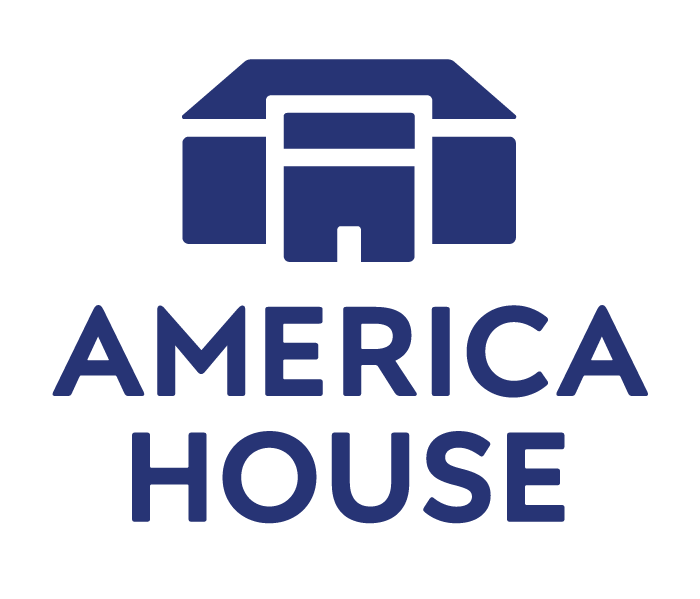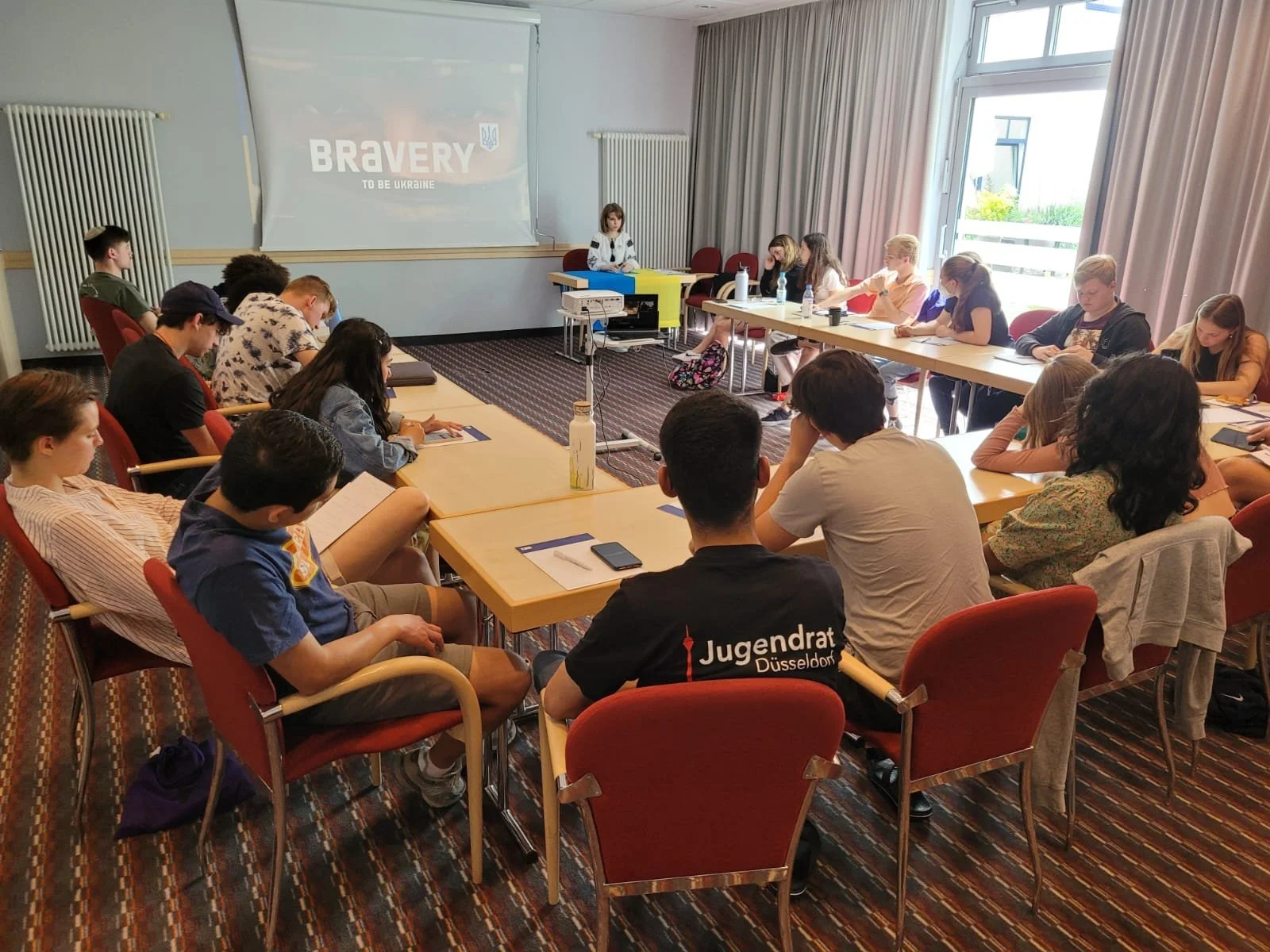America House Community Stories: Nina
This time we are sharing the story about another brave Ukrainian, Nina Bondar, America House Leadership Program alumna, who is currently participating in an internship with the European Parliament.
Nina told us about her experience volunteering at Ukrainian Catholic University during the war, how she became a speaker at an event for young people in Germany, and shared the thoughts that keep her live on now.
How did the full-scale war start for you?
I was in Lviv, studying at the Ukrainian Catholic University (UCU). We were all in the dormitory, and, of course, very scared. But the university coordinated everything well, we felt their strong support. At UCU, we had many different areas of volunteering that students could join. For instance, fighting against fakes, weaving camouflage nets, helping refugees, IT volunteering. My group mates and I joined the information war, we helped the information department to edit videos and put English and German subtitles. The materials were distributed through foreigners that we knew. We also created a landing page where students' and teachers' victory stories were told. Several interviews were conducted with teachers on the topic of the war: we asked historians about historical aspects, psychologists about ways to cope with all the difficulties now.
Photos: School of Journalism and Communications of UCU
How did you get an internship at the European Parliament?
I learned that the European Parliament offers internships to Ukrainian students whose studies have now been interrupted. I sent my resume and I was selected. After April, I moved to Brussels and am now doing an internship in the office of a Luxembourg deputy. I help with the communication part.
What is it like to intern at the European Parliament?
Each member of the European Parliament has their own mini-office, where assistants work helping with various areas, since the members are involved in various committees: economy and environment, trade and others. I help with writing meeting reports and communication work. I mainly work in visual communications, recently developed a brand book and templates for social networks. Once I went with a deputy to a school in Luxembourg, where there was a panel about Ukraine. Then students asked me questions about how Ukrainians feel now, how to help them.
You held an event about Ukraine for youth from Germany and the U.S. as part of the Ambassadors in Sneakers program from the German-American Institute. How did everything go?
It was my first and rather large-scale experience as a speaker. Moreover, it was in English, also in Berlin, also about Ukraine at such a crucial time. That's why I was a little nervous. But the article on Osvitoria, an NGO that develops education in Ukraine, was about how to properly communicate to foreigners about the war in Ukraine. This helped me a lot. University lectures on how civil society responded to a full-scale invasion were also helpful.
First, I talked about the historical context of the war, about the fact that Kyiv is much older than Moscow, that the russians have constantly been stealing our history and our culture. I explained Ukraininan revolutions and brought it all up to today. Then we drew conclusions in which conditions Ukrainian society exists now and how it affects civil society.
The main message was that Ukraine is a vivid example of a country where informal institutions, such as civil society, are much stronger than formal ones, and people trust them more.
We had a very active question session. There were questions like "Now in America they say that russia is trying to regain its historical territories, is it true or not?" and about the current setting in Donbas. Germans asked how to trust information and choose reliable sources. Of course, participants were interested in how to help Ukrainians.
How do foreigners generally perceive information about Ukraine — are they interested or are they a bit distant?
Participants of the event I held (students aged 16 to 22), are more into this topic. Maybe they already had similar discussions during this program. And in principle, there are such discussions everywhere now. Now, no matter what the context, everything affects Ukraine. In the parliament, they talk about it at almost every meeting. The MP with whom I am doing an internship strongly supports Ukraine.
There was an American girl at the Ambassadors in Sneakers program who impressed me. She sat with wide eyes and listened to me attentively. She cried, said that she constantly spreads information about Ukraine and that she takes for granted being safe and living in the U.S.
What helps you to hold on and live on?
The thought that I would definitely return to Ukraine soon. I constantly think about how I can bring the experience I gained here to Ukraine. And these are not loud words, I really want to get into government communications after completing my internship and studies at UCU. I now see the great importance of communicating correctly about the entire path to the EU and after the EU. I am now very motivated by the thought that we will soon be European-integrated, and I feel a great responsibility to return and help our country get it right. And from the side of communications, I would very much like to be a part of it.







